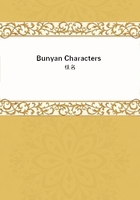
第228章 FIVE PICKT MEN(2)
2. 'The second was that famous captain, Good-hope. His were the blue colours. His standard-bearer was Mr. Expectation, and for a scutcheon he had three golden anchors; and he had ten thousand men at his feet.' The time was, my brethren, when all your hopes and mine were as yet anchored without the veil. But all that is now changed. We still hope, in a mild kind of way, for this thing and for that in this present life; but only in a mild kind of way. It would not be right in us not to look forward, say, from spring-time to summer, and from summer to harvest. If the husbandman had not hope in the former and in the latter rain he would not sow; and as it is with the husbandman so it is with us all: so ought it to be, and so it must be. But we say God willing! all the time that we plot and plan and hope. And we say God willing! no longer with a sigh, but, now, always with a smile. In His will is our tranquillity, we say, and we know that if it is not His will that this and that slightly anchored hope should be fulfilled, then that only means that all our hopes, to be called hopes, are soon to be realised. Our green and salad days in the matter of hope are for ever past. If we had it all absolutely secured to us that this world is still promising to its salad dupes, it would not come within a thousand miles of satisfying our hearts. Whether the hopes of our hearts are to be fulfilled within the veil or no, that remains to be seen; but all the things without the veil taken together do not any longer even pretend to promise a hope to hearts like ours. Our Forerunner has carried away our hearts with Him.
We have no heart left for any one but Him, or for anything without or within the veil that He is not and is not in. And till that hope also has made us ashamed,--till He and His promises have failed us like all the rest,--we are going to anchor our hearts on that, and on that only, which we believe is with Him within the veil. If our Forerunner also disappoints us; if we enter where He is, only to find that He is not there; or that, though there, He is not able to satisfy our hope in Him, and make us like Himself, then we shall be of all men the most miserable. But not till then. No;
not till then. And thus it is that Captain Good-hope has his billet in our heart; thus it is that his blue colours float over our house; and thus it is that his three golden anchors are blazing out in all their beauty on the best wall of our earthly house.
3. 'The third was that valiant captain, the Captain Charity. His standard-bearer was Mr. Pitiful, and for his scutcheon he had three naked orphans embraced in his bosom; and he also had ten thousand men at his feet.' O Charity! O valiant and pitiful Charity!
Divine-natured and heavenly-minded Charity! When wilt thou come and dwell in my heart? When, by thine indwelling, shall I be able to love my neighbour, and all my neighbours, as myself? When, in thy strength, shall I cease from repining at my neighbour's good;
and when shall I cease secretly rejoicing over his evil? When shall I by thee renewing me, be made able to cease in everything from seeking first my own will and my own way; my own praise and my own glory? When shall it be as much my new nature to love my neighbour as it is now my old nature to hate him? When shall I
cease to be so soon angry, and hard, and bitter, and scornful, and unrelenting, and unforgiving? When shall my neighbour's presence, his image, and his name always call up only love and honour, good-
will and affectionate delight? When and where shall I, under thee, feel for the last time any evil of any kind in my heart against my brother? Oh! to see the day when I shall suffer long and be kind!
When I shall never again vaunt myself or be puffed up! When I
shall bear all things, believe all things, hope all things, endure all things! O blessed, blessed Charity! with thy divine heart, with thy dove-like eyes, and with thy bosom full of pity, when wilt thou come into my sinful heart and bring all heaven in with thee!